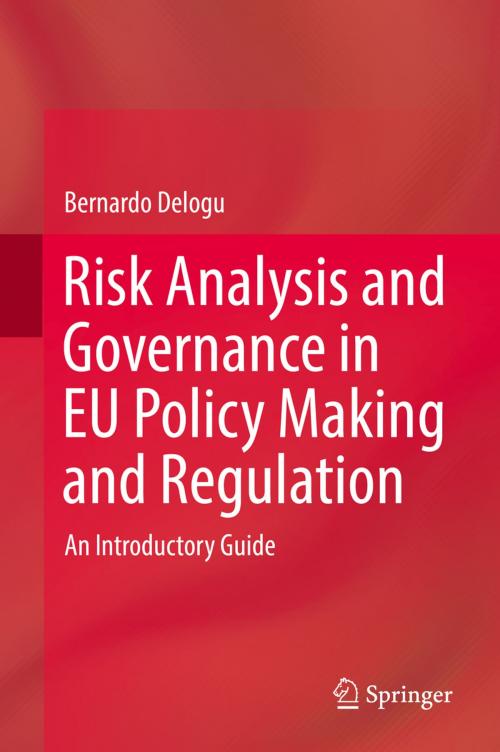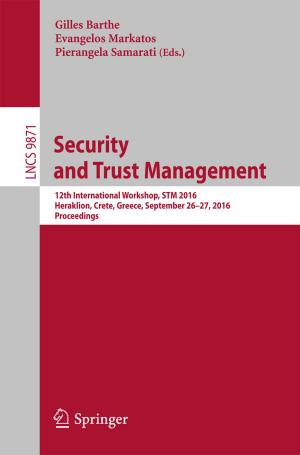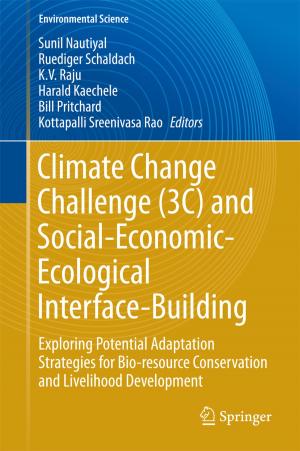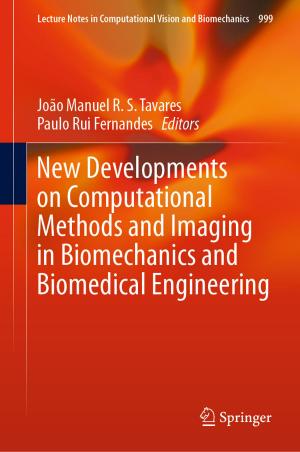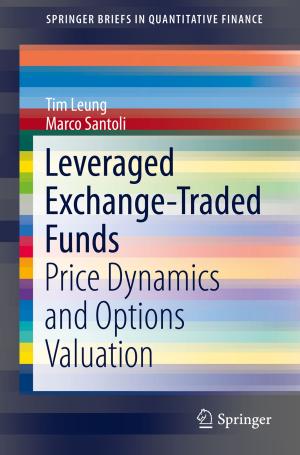Risk Analysis and Governance in EU Policy Making and Regulation
An Introductory Guide
Nonfiction, Reference & Language, Law, International, Social & Cultural Studies, Political Science, Government, Public Policy| Author: | Bernardo Delogu | ISBN: | 9783319308227 |
| Publisher: | Springer International Publishing | Publication: | May 2, 2016 |
| Imprint: | Springer | Language: | English |
| Author: | Bernardo Delogu |
| ISBN: | 9783319308227 |
| Publisher: | Springer International Publishing |
| Publication: | May 2, 2016 |
| Imprint: | Springer |
| Language: | English |
This book provides an easy, but comprehensive and rigorous access to the main concepts, terminology, methods and procedures of risk analysis intended for all those involved in the EU policy and regulatory decision making on risks. It establishes a common ground of knowledge which enables a more informed dialogue on risks, a closer collaboration between decision makers and scientists and a better appraisal of the potential and limits of risk science. The book also brings together in an accessible way much multidisciplinary knowledge which had been dispersed over many technical documents and specialist books.
The EU is in the front line of health, safety and environmental risk management. GMOs, food safety, hazardous chemicals, climate change, radiation hazards, are just a few of the popular risk issues addressed by the EU through policy and regulatory measures. The risk analysis paradigm, including risk assessment, management and communication has been at the core of the EU decision making for a long time already. EU Institutions strive for a science-based approach to risk management. Nevertheless, the dialogue and collaboration on risk issues between policy makers, stakeholders and scientists are still difficult and the potential and limits of science in support of decision making, as well as the basic concepts of risk analysis are not fully understood outside the narrow specialist circles.
This book provides an easy, but comprehensive and rigorous access to the main concepts, terminology, methods and procedures of risk analysis intended for all those involved in the EU policy and regulatory decision making on risks. It establishes a common ground of knowledge which enables a more informed dialogue on risks, a closer collaboration between decision makers and scientists and a better appraisal of the potential and limits of risk science. The book also brings together in an accessible way much multidisciplinary knowledge which had been dispersed over many technical documents and specialist books.
The EU is in the front line of health, safety and environmental risk management. GMOs, food safety, hazardous chemicals, climate change, radiation hazards, are just a few of the popular risk issues addressed by the EU through policy and regulatory measures. The risk analysis paradigm, including risk assessment, management and communication has been at the core of the EU decision making for a long time already. EU Institutions strive for a science-based approach to risk management. Nevertheless, the dialogue and collaboration on risk issues between policy makers, stakeholders and scientists are still difficult and the potential and limits of science in support of decision making, as well as the basic concepts of risk analysis are not fully understood outside the narrow specialist circles.
